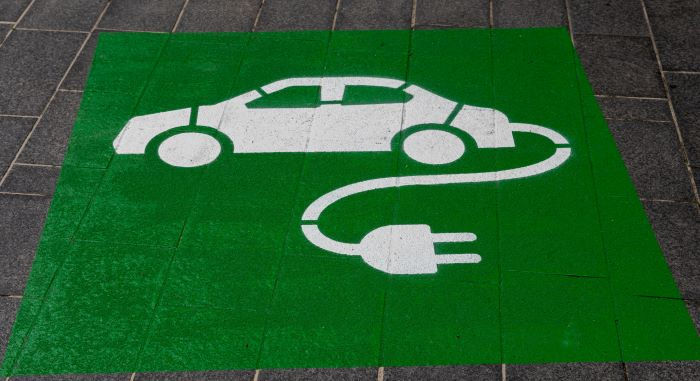Cost of EV Vehicle Ownership in Ireland
- Savvy

- Mar 20, 2023
- 4 min read
The Irish government targets 30% of all vehicles running in Ireland to be EVs by 2030 as part of its Climate Action Plan 2021. That would be equivalent to about 945,000 EVs. It is part of the Irish government's effort to promote the switch to zero-emission vehicles. For this reason, the government has launched several initiatives and grants to incentivize vehicle owners to make the switch.
The initiatives and grants are substantial offers given that the high cost of ownership is part of the criticism of owning an electronic vehicle. While EV proponents would argue that the long-term cost of ownership is cheaper given the current petrol and diesel costs, the upfront cost of buying an EV is too high for the Irish to afford.
Therefore, breaking down the various elements associated with owning an EV in Ireland is essential. It will give you a better understanding of the costs of running an EV and help you decide if you are considering switching.
Running Costs
With the increased popularity of EVs in Ireland, potential buyers are curious about the running costs of EVs. The upfront cost of buying an EV is higher than traditional petrol or diesel cars, but long-term savings offset that due to the lower running costs.
The most significant advantage is the lower fuel cost or lack of it. The Commission for Regulation of Utilities estimates that each EV in Ireland has an average running cost of €0.18 per kilometer. In comparison, diesel cars run at €0.27 per kilometer, and petrol cars cost €0.30 per kilometer. The total running cost of EVs is up to 60% cheaper than traditional vehicles.
The lower running costs are partly due to the lower electricity costs compared to fuel costs. The Sustainable Energy Authority of Ireland states that the average cost of electricity in Ireland is 20 cents per kWh. An EV with a 60 kWh battery costs €12 for a full charge. Meanwhile, filling up a traditional vehicle would cost €50 to €100.
If the initial upfront cost of acquiring an EV is not an issue, then the lower running costs of an EV are something you must take advantage of.

Grants and Incentives
One of the main advantages of EV ownership is the vast array of government grants and initiatives you can enjoy. For example, the Irish government has ambitious targets for the ratio of EVs running on Irish roads by 2030. Therefore, they offer financial incentives, tax breaks, and regulatory policies to encourage vehicle owners to switch to electric.
The first among many incentives is the lower tax rates. EVs in Ireland are exempted from the Vehicle Registration Tax (VRT) and have lower motor tax rates. If you add these up, it can translate into significant savings for EV owners. The current tax rate for EVs in Ireland is €120. It’s comparably lower than traditional ICE vehicles that require owners to pay €280 to register their vehicles.
Another tax incentive for EV owners is fuel excise or carbon tax. Fuel excise applies to vehicles that run on diesel and petrol. However, since EVs use electricity as their primary power source, they are exempt from this tax.
The Irish Government also offers the SEAI EV Home Charger Grant, which offers up to €600 in grants to EV owners. They must use this grant to install a home charging point, making charging their EV convenient at home. It is a grant incentive intended to overcome one of the significant roadblocks to EV adoption in Ireland: the lack of EV charging infrastructure in public spaces.
It's not just private vehicle owners that can enjoy the government incentives for switching to EVs. Businesses that switch to EVs can also enjoy the SEAI EV Fleet Grant. Companies are granted up to €4,000 if they purchase at least 10 EV units for their business.
The SEAI Electric Vehicle Grant is the most expensive support scheme from the government to encourage the adoption of EVs in Ireland. Since its inception in April 2011, it has issued up to €130.6 million in grants and helped purchase over 27,000 EVs. The support scheme is offered to both private and commercial vehicle use. The maximum grant for private vehicles is €5,000, although the actual grant depends on the car's list price. This grant typically ranges from €2,000 to €5,000.

Maintenance Costs
The maintenance costs of EVs are another primary consideration when switching to electric. EVs have fewer moving parts, so maintenance costs less than traditional diesel or petrol cars. Which?, a UK consumer champion, estimates that the EV maintenance costs will be 70% lower than petrol or diesel cars. EVs lack common parts in traditional vehicles, such as exhaust systems, spark plugs, and fuel injectors. These parts cost a ton of money to repair or replace.
In addition, EV brake pads and tires tend to wear less than traditional cars. Therefore, these also don't require you to buy a replacement as often as you would with conventional vehicles. It's because EVs employ regenerative braking systems that require frequent braking, thus eliminating the wear and tear on brake pads.
Additional Costs to Be Aware Of
It’s undeniable that EV ownership offers potential savings in the long run. Government incentives and lower taxes can also be attractive to anyone who wishes to purchase an EV. However, there are additional costs of ownership that you must be aware of and consider before you decide to buy.
The main cost you should consider is the installation cost of a charging point at home. Grants are available to offset the cost, but it's another expense to consider on top of the vehicle purchase. The need for more public charging infrastructure for EVs in Ireland remains an issue, despite the government's concerted efforts to promote adoption of EVs. Due to the limited EV charging infrastructure, installing a home charging point is a must in the immediate future.
Another cost to consider is the battery replacement for EVs. EV batteries are designed to last for several years. But it’s important to understand that they will eventually need to be replaced, depending on the extent of usage. The cost of battery replacement varies from one model of car to another.
The Bottom Line
There are benefits and drawbacks to owning an EV in Ireland. Consider the above mentioned costs to help make an informed decision to switch to electric. Despite ownership costs, you must also consider the long-term environmental benefits, such as lower emissions.









Comentarios